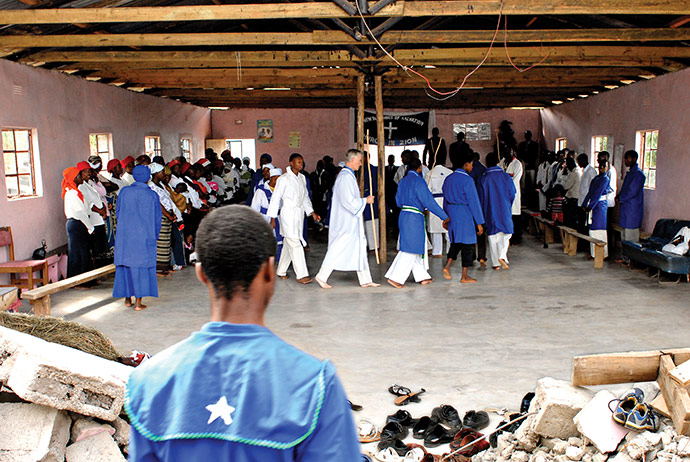
Missionary Life
Do Western Missionaries Damage Cultures?
April 15, 2014
by Mark Watson

Today, TEAM missionary Brett Miller shares about how missionaries impact cultures in good and bad ways — and how to avoid the latter.
Recently, I went pheasant hunting with some friends of my Dad who were kind enough to include me in their circle. It was a special day and, as one of them pointed out, likely my last day of pheasant hunting. There are no pheasants in Swaziland, where my wife and I are going to serve as missionaries.
One of the men I was hunting with made a perceptive comment. He told me that missions had done serious damage to cultures. He meant it as a judgment against missions. He had seen the damage that some missionaries had done in a Native American setting. He was right. Missionaries damage cultures — or at least they change them. But he was wrong, in my opinion, if he meant that change to culture is always a bad thing. Missionaries, as long as they are operating as Christian missionaries and not as “Western” missionaries, can bring about positive change in a culture. Let me explain.
“Western” missionaries are the type who bring Western culture, including Christian culture, to other cultures. I was at a missions convention once when a man told me about the “Church of Pants” he found. He had traveled around the world to a remote area and was taking a cab on a dusty road from the small airport. He asked his cab driver if he was a Christian, and the driver told him no. The driver said he knew all about the Christians, however. They wore pants. But he and most everyone in his culture wore robes. According to him, the missionaries there thought they looked too much like skirts, too feminine, so they convinced the converts to wear pants. The Christians there were the “Church of Pants.” The missionaries there had evaluated the local culture against Western standards (even though Jesus likely wore robes). They had damaged the culture, and the Christian witness along with it.
Christian missionaries, on the other hand, are distinct from Western missionaries, because they do not employ a particular cultural standard. Their standard is simply Christ. But that doesn’t mean Christian missionaries should not seek to change cultures. Where there is a culture of human sacrifice, widow burning, and oppression, that culture should be changed — damaged, if you will. Animism, for example, is a cultural belief that is not only counter to the Word of God, it is poison to a society and its individuals. It leads to fatalism and robs people of hope.
Many international groups, Christian or otherwise, are working to change cultures abroad. Consider the movement aimed at educating young women in male-dominated societies. This is a major paradigm shift in some parts of the world — potentially quite disruptive for those societies — yet it’s a change that most of the international community agrees is good. So the question is not, “Do missionaries damage culture?” but “How should missionaries change culture?”
My wife, Evelyn, and I seek to challenge culture wherever it disagrees with Christ. That sounds pretty simple, but it is not! We have grown up in Western culture. In Swaziland, where we are going to serve, Evelyn must wear skirts, an expected behavior for women there. It’s seen as provocative if a woman wears pants. Evelyn will wear skirts to send the right message. I’ll wear a tie when I teach, because that sends a message. If I wore a tie when teaching in the United States, it would probably convey that I am “above” the students. But in Swaziland, it is a sign of respect.
Evelyn and I have so much to learn about culture. You see, we are not really Westerners — we have just lived here in the States. Evelyn and I, like many of you, are children of the Kingdom. I Peter 2:11 calls us strangers and temporary residents in this world. In Ephesians 2:19, we are told we are not foreigners and strangers to God, but citizens of God’s household. When we, and all Christians, look at culture and behaviors, we must keep in mind that our standard is not that of the world, Western or otherwise, but the standard of our King.
“Though I am free and belong to no one, I have made myself a slave to everyone, to win as many as possible. To the Jews I became like a Jew, to win the Jews. To those under the law I became like one under the law (though I myself am not under the law), so as to win those under the law. To those not having the law I became like one not having the law (though I am not free from God’s law but am under Christ’s law), so as to win those not having the law. To the weak I became weak, to win the weak. I have become all things to all people so that by all possible means I might save some. I do all this for the sake of the gospel, that I may share in its blessings.” 1 Corinthians 9:19–23 (NIV)
This is an edited version of a post that originally appeared on Miller’s personal blog.

